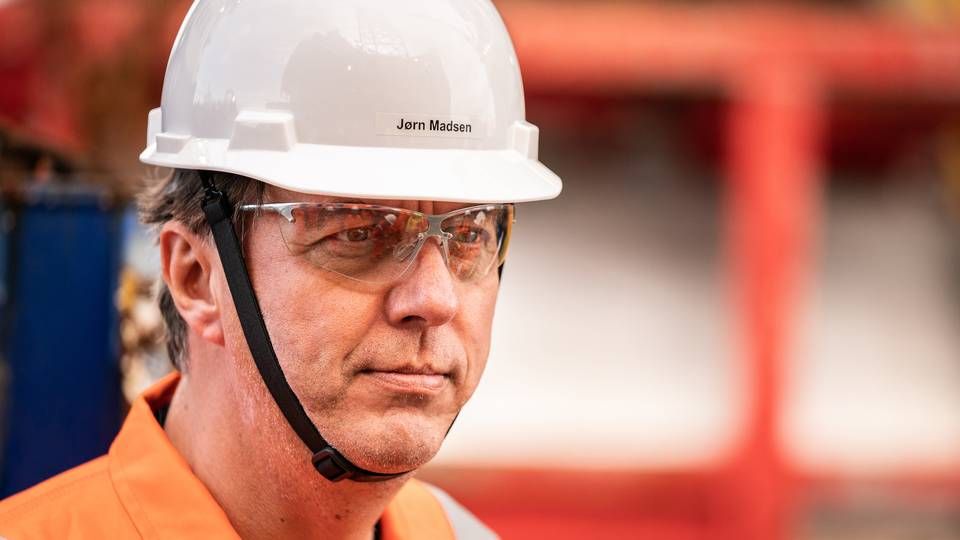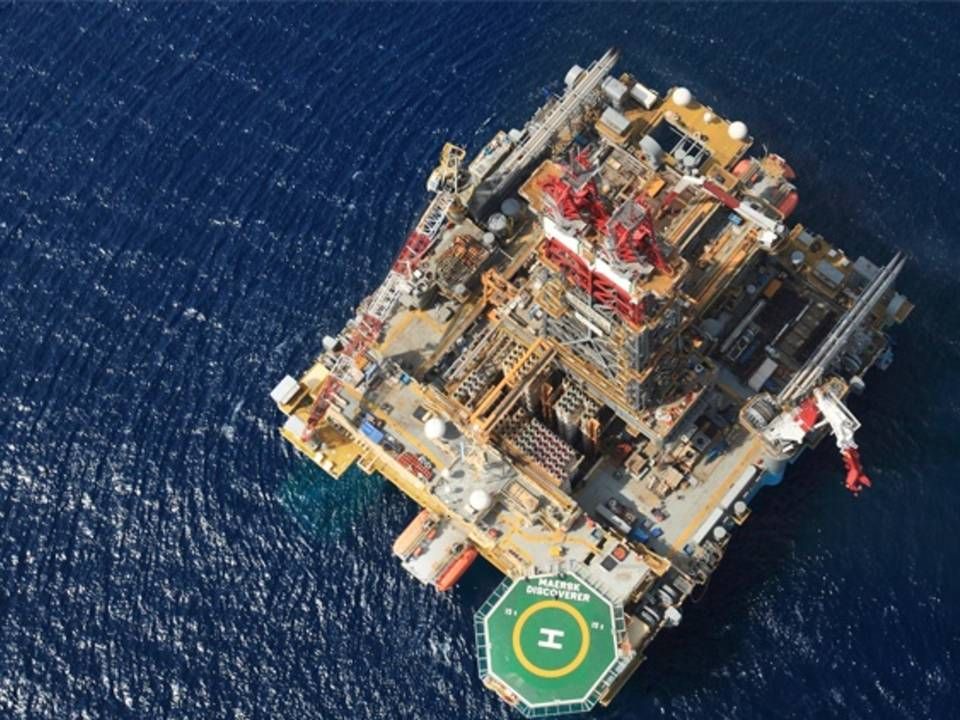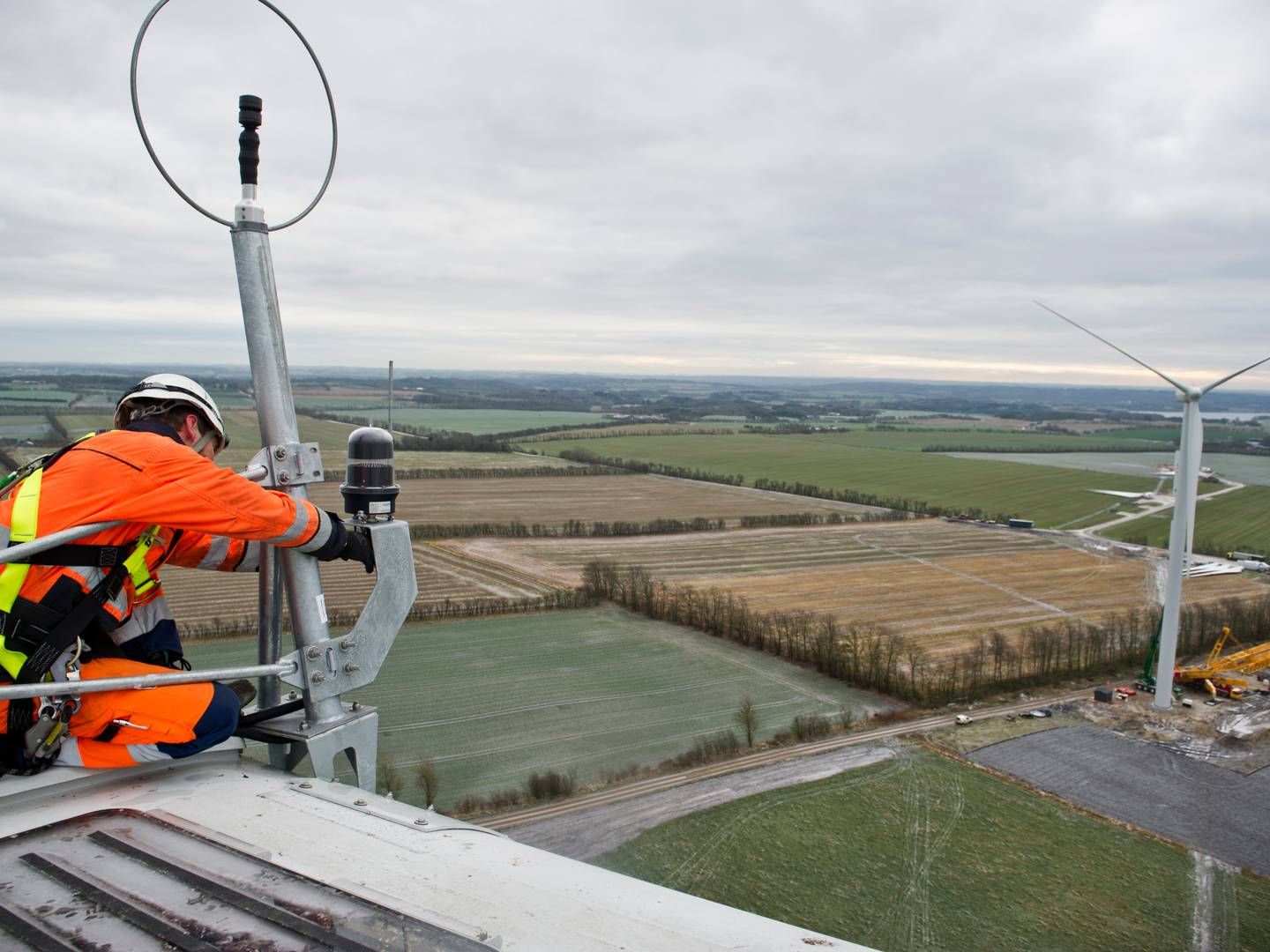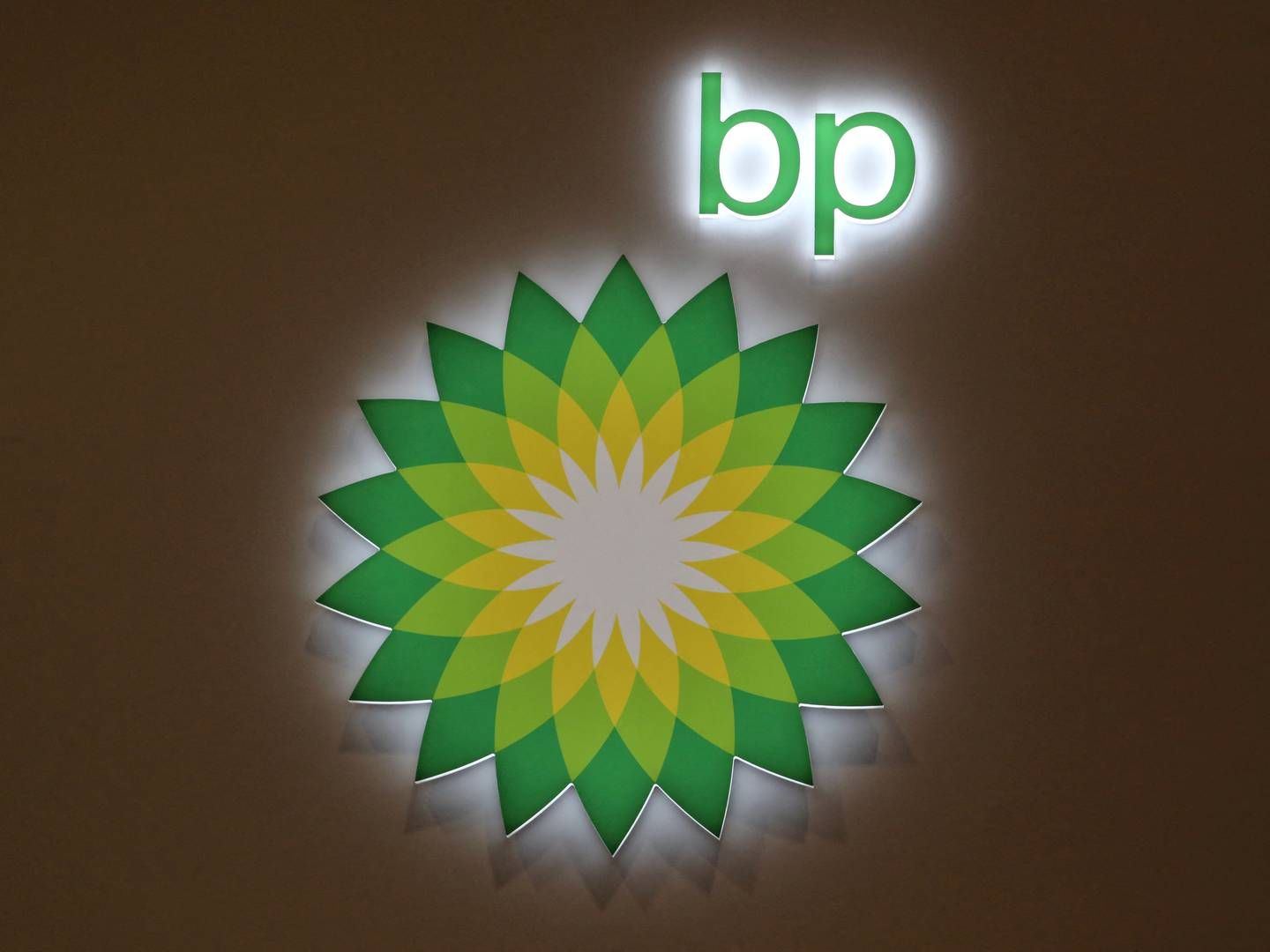Drilling CEO: Sad to see stakeholder losses – but activity is rising

Although the market is slowly beginning to recover after a number of difficult years in the drilling rig sector, investors have curbed their optimism on the stock market in recent months.
Maersk Drilling, which leases drilling rigs and vessels to the oil sector, is not exempt from this. Since its independent listing earlier this year, its share price has dived to DKK 365 (EUR 48.8) from a debut of DKK 575.
This corresponds to a drop of almost 37 percent and is not exactly cause for excitement for the company's Chief Executive Jørn Madsen, who maintains that a drilling market recovery is imminent.
"To me it's a reaction to stockholders seeing that the recovery didn't really appear, as otherwise proclaimed by some market players," he says and points out that the entire sector on average has dropped "somewhat further".
"We still see the activity level going up. The stock price naturally reflects shareholders' expectation for the future, and I'm not in control of that, but we're aware of it. Of course it's sad when our shareholders seem to have lost money," he tells Ritzau Finans during a visit on drilling rig Maersk Invincible.
Must be in the sector for the long haul
Maersk Drilling used to be part of A.P. Møller-Mærsk, but as early as 2016 the group announced its plans to spin off its energy business – including the drilling company.
In April this year, that led to an independent listing on Nasdaq Copenhagen under the name The Drilling Company of 1972, and asking the Maersk Drilling CEO, the company has so far lived up to the pledges it made to shareholders.
"It's a cyclical stock, and the drilling sector is an industry where you need to be there for the long haul. That's the nature of cyclical stocks," Madsen says.
"We can examine what we've delivered. When we presented our figures for the second quarter in August, we had delivered what we said we would. We still guide toward what we said at the beginning. In that way you could say that from the company's perspective, we've confirmed the statements we gave earlier," he continues.
Competitor stocks dropped even further
Moreover, Maersk Drilling is far from the only company in the sector to see decreasing stock prices.
Since early April, when the Danish company was independently listed, several competing firms have dropped even further on the stock market.
During the period, Norwegian Seadrill dropped almost 78 percent on the Oslo Stock Exchange, and the drops for Northern Drilling and Borr Drilling amount to about 57 and 62 percent, respectively, from April to mid-October.
At the same time, Diamond Offshore Drilling, Noble Corporation, Transocean and Valaris dived by between 51 and almost 67 percent on the stock exchange in the US.
Norwegian Odfjell Drilling has also seen fluctuations in recent months. Still, its stock fell only 2 percent in total since early April.
According to both ABG Sundal Collier and Kepler Cheuvreux, which monitor sector developments, there are several reasons that the industry has seen general adversity on stock exchanges in recent months, despite the fact that the market is also showing signs of recovery.
"It's been somewhat turbulent on the stock exchanges these past months. Stocks in drilling companies are marked by high volatility, and that's why we've also seen some reactions during summer," says Magnus Olsvik, equity analyst at Kepler Cheuvreux.
Oil price and slow recovery weigh down
Since early April, the price for a barrel of European reference oil Brent has dropped almost 13 percent to USD 58.68 in mid-October. Since October last year, the price has gone down about 25 percent.
Drilling rig companies make money by leasing out rigs and ships to oil companies, which then extract and sell the oil.
That is why the drilling rig sector is not directly dependent on developments in the oil price, but they still play a crucial role for both Maersk Drilling and competitors, as they affect customer demand.
"Share price drops are due to several factors. Among other things, what's happening with oil prices is of significance. They collapsed late last year, and although the pressure on oil prices don't impact drilling rig companies directly, it might indicate the level of investment willingness at oil companies," says Lukas Daul, equity analyst at ABG Sundal Collier.
The drilling industry has been under pressure for several years ever since the oil price plummet in 2014-’15, which resulted in oil outfits losing their willingness to invest. This led to a lack of assignments for many rigs.
Some of this pressure has abated in the last few years, but some investors might be disappointed that the recovery is taking longer than expected.
"The sector is returning from the worst downturn to date. Even though the market has recovered from this base level, profitability is generally still very low, and many companies are also burdened with considerable debt. The slow market recovery has raised alarms for many investors," Daul says.
According to Olsvik, growing attention to climate change has not necessarily been a factor in the companies’ depreciating share prices, but it could be significant for oil and gas operators looking forward.
"The energy mix will include oil and gas for several decades yet, but when we look at stock market valuations, this could end up playing a role. Investors shouldn’t expect share prices to return to their former levels," he says.
Maersk Drilling is a strong player
Since its independent listing, Maersk Drilling’s market value has declined to DKK 15.2 billion from DKK 23.9 billion. Quants nonetheless emphasize that the Danish drilling outfit is one of the sector’s strongest.
They highlight that Maersk Drilling is well-balanced, has comparably low debt, a relatively new, modern fleet as well as the fact that the company holds a strong position in some of the more viable markets.
"Maersk Drilling is one of the strong players in the sector. It holds a leading position in the North Sea jack-up segment, and that’s a favorable position to hold right now," says Olsvik and continues:
"Maersk Drilling is also distinguished in its balance following its spin-off from the Maersk group. It has no heavy inheritance from the old days, and that provides its strong position compared to its rivals."
Daul also calls the North Sea segment a "bright spot" in the drilling market and points out that day rates have approached the historical average.
He also highlights that Maersk Drilling is more financially robust than many competitors.
"It’s also a company with the strongest balance. There is fine visibility for the next two years of earnings. It’s also a company people know will be here in five years. That’s not something one can say about all companies in the sector in these times," Daul says.
ABG recommends "hold" for Maersk Drilling’s equity, while Kepler says "buy".
Wednesday afternoon, Maersk Drilling shares trade 1.8 percent lower at DKK 365.
English Edit: Jonas Sahl Jørgensen & Daniel Frank Christensen
Maersk Drilling CEO expects upturn despite macro slump forecast
Related articles
Maersk Drilling's CEO in no rush to shop
For subscribers


















.jpg&w=384&q=75)





